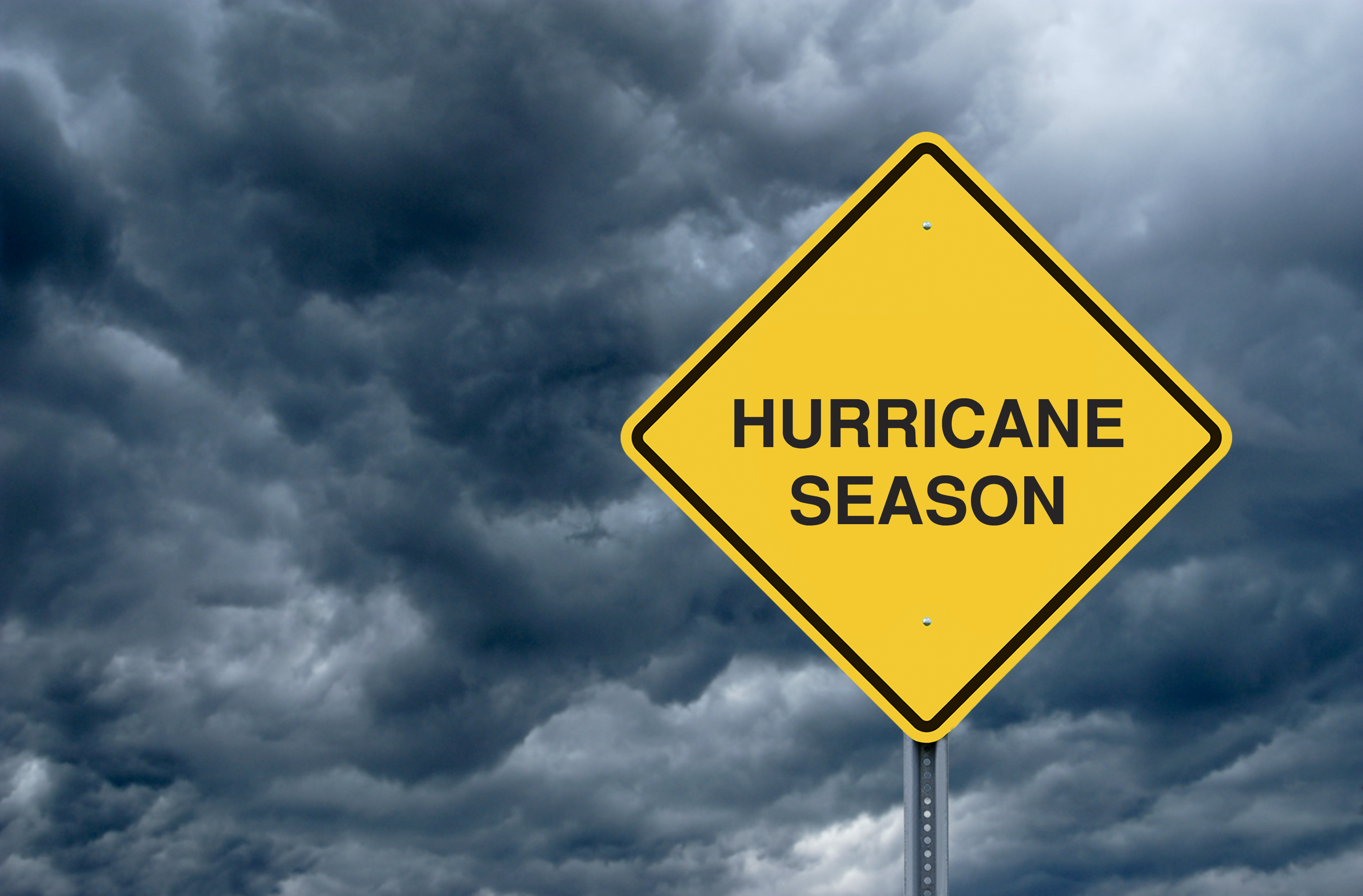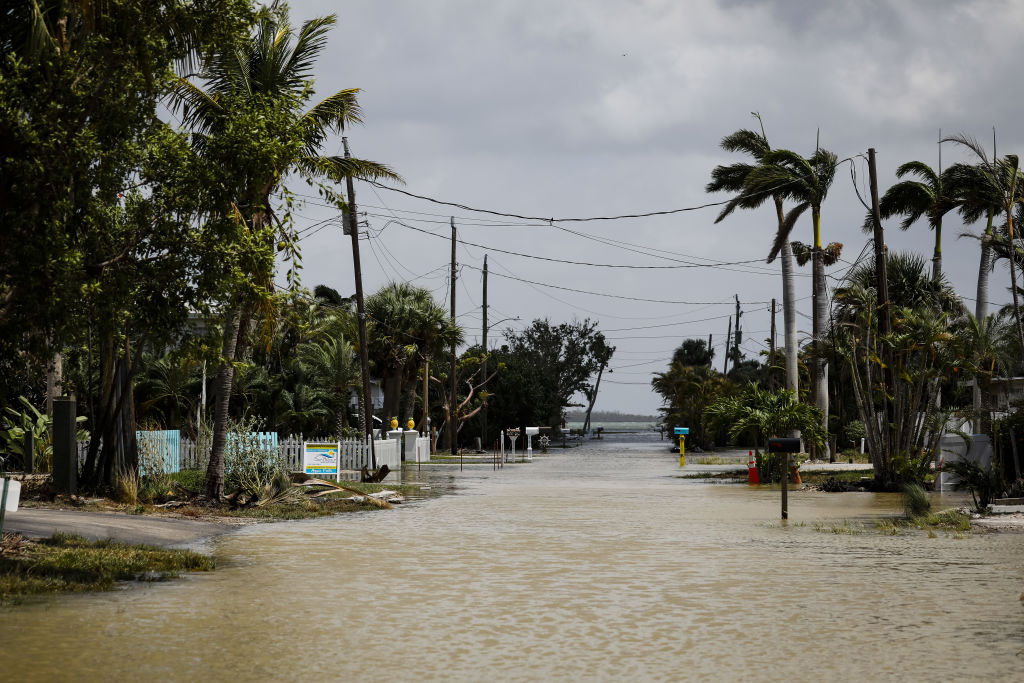
Atlantic hurricane season starts in June and ends in November, so if you have a vacation planned within the next several weeks, it will pay off to consider how your trip could be impacted by severe weather. Most hurricane activity occurs between mid-August and mid-October, typically peaking in September, which could throw a wrench in your upcoming plans.
So far this year, five storms have formed in the Atlantic basin, three of which were hurricanes. And plenty more storms are expected as the hurricane season progresses. NOAA estimates there will be 17-25 named storms (average is 14), 8-13 hurricanes (average is 7) and 4-7 major hurricanes (average is 3) in total this year.
You know what they say — it’s better to be safe than sorry. Adequately preparing for a vacation during hurricane season can help you avoid risky situations and prevent a huge loss of money. Here's what you need to know about protecting your hurricane season trip.
Protect your hurricane season trip during the 2024 Atlantic hurricane season
The 2024 hurricane season is expected to be more intense than previous hurricane seasons. NOAA predicted an 85% chance of an above-normal season this year, due to near-record warm ocean temperatures, the development of La Niña conditions in the Pacific, and reduced Atlantic trade winds and less wind shear.
We've already witnessed this with Hurricane Beryl, whose early development and rapid intensification caused it to be the earliest Category 5 hurricane observed in the Atlantic basin on record. Then there was Hurricane Idalia, which caused billions of dollars in damages and brought dangerous storm surges stretching from Florida to the Carolinas.
Hurricane Ernesto, which made landfall in Bermuda in mid-August, impacted much of the U.S. Eastern Seaboard with rip-tides and high surf. And right now, the National Hurricane Center is tracking a disturbance in the Atlantic Ocean, waiting to see how it will develop.
Despite recent storms, the Atlantic has been relatively calm over the last week, with more storms being seen in the Pacific. "It is quiet out there," Colorado State University meteorologist Phil Klotzbach told USA Today. "I certainly wasn't expecting this when we put out our most recent seasonal forecast!"
But this brief pause in activity doesn't mean your hurricane season trip is 100% risk-free. According to the Weather Channel, lulls in hurricane season are usually followed by highly active periods. For this reason, if you plan on traveling somewhere hurricane-prone between now and November, you'll want to prepare as best as you can. Don't forget: Hurricane Ian devastated Florida in late September 2022, while Superstorm Sandy hit New York City at the end of October.
The following guidelines can help you protect your hurricane season trip.
1. Choose a safer location
Just because it's hurricane season doesn't mean you have to sacrifice that end-of-summer vacation altogether. You might just have to sacrifice your ideal destination for one that’s less prone to hurricanes.
According to Sperling's BestPlaces, the following areas in the U.S. are most likely to be hit by a major hurricane:
- Southeast Florida (Miami-Fort Lauderdale-West Palm Beach)
- Key West and the Florida Keys
- Southwest Florida (Fort Myers-Naples)
- West Florida (Tampa-St. Petersburg-Sarasota-Clearwater)
- Outer Banks Islands, NC (Cape Hatteras)
- Central Texas Gulf Coast (Galveston)
- Central Florida Atlantic Coast (Melbourne-Cocoa Beach)
- Florida Panhandle (Pensacola-Panama City)
- Central Gulf Coast (New Orleans, LA-Biloxi, MS-Mobile, AL)
- South Texas Gulf Coast (Corpus Christi-Brownsville)
And according to Travel Safe, these are a few international destinations travelers should be wary of visiting during peak hurricane season:
- Aruba
- Jamaica
- Belize
- Cancún, Mexico
- The Azores, Portugal
- Even the United Kingdom
Instead, consider the following destinations. Mainly, the “ABC” Islands (Aruba, Bonaire and Curaçao) are listed as some of the safest travel destinations to visit during hurricane season:
- Aruba
- Bonaire
- Curaçao
- Panama
- Grenada
- Trinidad and Tobago
- St. Vincent and the Grenadines
2. Don't make assumptions about cancellation policies

It's always important to understand your flight, hotel and rental car cancellation policies before traveling. If something goes wrong, like a canceled or delayed flight, don't just assume you'll be reimbursed. Policies vary from company to company —some offer flexible cancellation policies, while others are only partially refundable.
The U.S. Department of Transportation (DOT) has been firming up rights for flyers in cases of cancellations and delays. For example, consumers are entitled to a refund if an airline cancels or makes a "significant change" to a flight to, from or within the U.S., regardless of the reason, and the consumer chooses not to travel, according to the Department of Transportation. That includes in cases where the ticket was bought as non-refundable, and it's true "regardless of the reason" for the change or cancellation.
Under a DOT rule issued in April, airlines are required "to promptly provide passengers with automatic cash refunds when owed," so you shouldn't have "to explicitly request [refunds] or jump through hoops" to get them. The rule says refunds should come in the original payment method, which includes credit card or airline miles.
Significant changes to a flight include departure or arrival times that are more than 3 hours domestically and 6 hours internationally; departures or arrivals from a different airport; increases in the number of connections; instances where passengers are downgraded to a lower class of service; or connections at different airports or flights on different planes that are less accessible or accommodating to a person with a disability.
Note that the DOT rules are still new and airlines still have time to get processes in order to comply with theme. DOT Sec. Pete Buttigieg sent a letter to the CEOs of the 10 largest American airlines at the end of July saying they're expected to comply, and the refund rule goes into effect in October - which means it could be after your flight gets disrupted, if you're traveling in September, say.
To compare current policies between airlines, the DOT’s Airline Cancellation and Delay Dashboard can be helpful. It conveniently shows information about services that U.S. airlines provide when the cause of a cancellation or delay was due to circumstances within the airline’s control.
Hotel and car rental policies can vary, but typically, the amount you're refunded depends on how far in advance you cancel. Standard cancellation windows range from 24 hours to 1 week. For example, according to Enterprise, if you cancel your booking less than 7 days, but at least 24 hours before your specified pick-up time, you will be refunded the booking amount minus a small cancellation fee.
According to Hilton, cancellation policies vary depending on the rate or dates of your reservation. Heavily discounted rates will typically have stricter cancellation policies.
3. Buy travel insurance
Your best option to ensure your trip is fully protected is by purchasing travel insurance, which typically costs between 4-10% of a trip's price. Travel insurance policies fall into one of three tiers: basic, middle-tier and comprehensive coverage. Basic policies typically cover just trip cancellation and lost baggage, while mid-tier policies include the same benefits as basic policies but add a health insurance benefit.
A comprehensive travel policy includes both the benefits of basic or middle-tier policies, with even more coverage. With a comprehensive travel policy, you'll receive coverage for cancellations, medical expenses, accidental death, evacuations and loss or delays. And often, it comes with 24/7 assistance. While comprehensive policies are the most expensive, they're often worth it for that added peace of mind. The average cost of travel insurance is roughly $308, based on travelers who compare and purchase plans through the company, according to Squaremouth
Sites like InsureMyTrip and CoverTrip can help you compare policies.
Many of the best travel rewards credit cards also offer some form of travel insurance. Depending on the card, you could receive coverage for everything from lost or delayed baggage to missed connections or canceled trips. Some cards even offer some degree of travel medical insurance. Opting for a credit card with travel insurance can be a great way to protect your trip, and can also be used alongside a standard travel insurance policy to maximize coverage.
Compare credit cards by using our tool below, powered by Bankrate:
4. Stay informed and have a plan
You've protected your trip financially, now it's time to make a plan for what to do if your vacation does get derailed by a storm.
First, before you ever leave your home, start checking the weather forecast. Staying up to date on the development of any storms can help you make informed decisions on whether or not you should travel at all. You can use the FEMA app to receive real-time weather alerts and the Smart Traveler Enrollment Program (STEP) to receive important information from the embassy about safety conditions in your destination country.
Before traveling, you'll also want to know evacuation procedures for the area you're visiting and have an evacuation plan in place before you get there. Packing emergency supplies or purchasing some when you arrive is also worth consideration. It's also a good idea to pack all of your essentials in a carry-on, in case your baggage gets lost or delayed.
Make sure to pay attention to the latest news and alerts, and follow any directions regarding evacuations. You are not only putting yourself in danger if you choose not to follow evacuation orders: You are also putting first responders in danger and taking away resources from residents.
Bottom line
While traveling during hurricane season can be risky, there are steps you can follow to ensure your trip is protected. Of course, opting for a location with minimal hurricane risk is recommended. But if you must travel somewhere with a heightened risk of severe weather, one of the most important steps is to purchase travel insurance. Sure, it'll likely cost several hundred dollars upfront, but ultimately save you several thousand down the line if issues arise while you're abroad.







